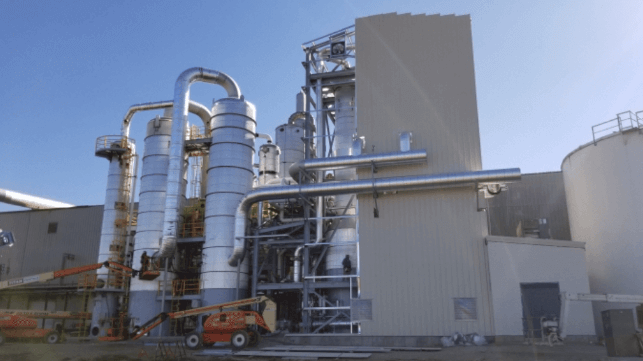Maersk Invests in Green Methanol Production in South Dakota

The green-energy revolution in shipping faces a challenge of coordination and sequencing: the ships and the fuel supply have to be built at about the same time in order to succeed. This is a key challenge for most shipping stakeholders, who do not have the wherewithal to build their own energy industry. Maersk, however, has the funding and the will, and it is setting up its own green methanol supply chain without waiting for help.
On Wednesday, Maersk announced the signing of a letter of intent with an American company to create green methanol from a source of biogenic (not fossil) CO2. Methanol requires hydrogen and CO2 to produce, and if the CO2 comes from captured fossil fuel exhaust, it is substantially less green: the fossil CO2 gets "used" a second time, but it is still released into the atmosphere at the end of the cycle when the methanol is burned. However, CO2 from plant matter (biogenic CO2) is not a fossil product, and its release is offset by the CO2 uptake of other plants.
Carbon Sink plans to make green methanol bunker fuel using green hydrogen made with renewable electricity and biogenic CO2. Its partnership with Maersk will see the construction of a green methanol plant at the Red River Energy corn-to-ethanol plant in Rosholt, South Dakota. This is far from any seaport, but it has the advantage of access to biogenic CO2 harvested from Red River Energy's emissions. The Carbon Sink plant will make 100,000 tonnes of methanol per year, and Maersk plans to buy all of it.
It is Maersk's eighth methanol project to date, and it follows on the heels of a massive $10 billion e-methanol framework agreement with the government of Spain.

that matters most
Get the latest maritime news delivered to your inbox daily.
"Securing green fuels at scale in this decade is critical in our fleet decarbonization efforts. We have set a 2040 net zero target for our entire business – but importantly to stay in line with the Paris Agreement, we have also set 2030 targets to ensure meaningful progress in this decade. Partnerships are essential on this journey," said Berit Hinnemann, Maersk's head of green fuel sourcing.
Red River Plant's own commercial product is not methanol, but corn-based ethanol, a required gasoline additive in the United States. Opinions on its sustainability vary widely between research groups and stakeholders: A recent study sponsored by the National Wildlife Federation and U.S. Department of Energy found that corn ethanol is likely about 24 percent more carbon intensive than fossil gasoline, and a study from Argonne National Lab found last year that it is about 50 percent less carbon intensive.
